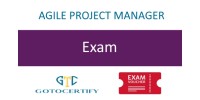Exam Glossary
| Term | Main definition |
|---|---|
| partnership | A relationship between two organizations that involves working closely together to achieve common goals and objectives. |
| partners and suppliers | One of the four dimensions of service management. It encompasses the relationships an organization has with other organizations that are involved in the design, development, deployment, delivery, support, and/or continual improvement of services. |
| parallel operating model | An approach to executing digital strategy while maintaining a steady state. |
| paradoxical intervention | A management technique that relies on asking staff for something in order to achieve the opposite result; for example, asking for more risks to be taken to decrease their impact. |
| outsourcing | The process of having external suppliers provide products and services that were previously provided internally. |
| output | A tangible or intangible deliverable of an activity. |
| outcome | result for a stakeholder enabled by one or more outputs. |
| out-of-the-box services | Services immediately available for use after a service agreement is reached, with little or no need for onboarding and setup. |
| organizations and people | One of the four dimensions of service management. It ensures that the way an organization is structured and managed, as well as its roles, responsibilities, and systems of authority and communication, is well |
| organizational velocity | The speed, effectiveness, and efficiency with which an organization operates. Organizational velocity influences time to market, quality, safety, costs, and risks. |
| organizational resilience | The ability of an organization to anticipate, prepare for, respond to, and overcome adverse events in the internal or external environments. |
| organizational change management practice | The practice of ensuring that changes in an organization are smoothly and successfully implemented and that lasting benefits are achieved by managing the human aspects of the changes. |
| organizational agility | The ability of an organization to move and adapt quickly, flexibly, and decisively in response to events in the internal or external environments. |
| organization | A person or a group of people that has its own functions with responsibilities, authorities, and relationships to achieve its objectives. |
| opportunity | A situation that allows an organization to expand its existing operation, either by introducing new products and services or by moving into a new market. |







